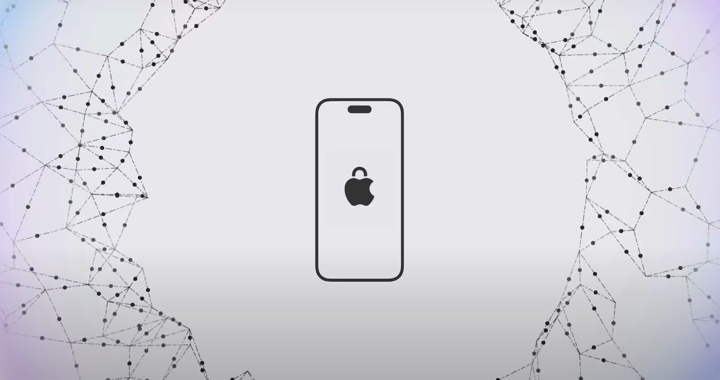The introduction of Apple Intelligence was the main highlight of the World Wide Developers Conference held on 10 June 2024. However, aside from introducing what several observers have deemed one of the best implementations of end-use artificial intelligence applications, Apple wowed its audience with the unveiling of its Apple Private Cloud Compute. The positive reactions are warranted. The company essentially implemented cloud-based AI processing that adheres to the basic principles of data security and privacy.
What is Apple Private Cloud Compute? How Does It Work? What Are the Features and Benefits?
A Definitive Explainer on the Private Cloud Server Implementation of Apple and its Role in Apple Intelligence
Background
Apple Private Cloud Compute or PCC is essentially a private cloud server. What sets it apart from public cloud servers like Amazon Web Services and Microsoft Azure and private cloud services is that it is exclusive to users of eligible Apple devices. Furthermore, rather than using third-party hardware components, the entire cloud infrastructure is built using custom Apple silicon and a dedicated operating system designed for security and privacy.
The aforementioned means that Apple brings hardware security technologies found in Apple system-on-chips like the A Series chips used in iPhones and M Series chips used in iPads and Mac computers. These technologies are Secure Enclave, which is a coprocessor that runs cryptographic operations to protect data, and Secure Boot, which is a security standard that ensures a device boots using only software that is trusted by the device manufacturer.
Apple devices are known for security and privacy through on-device processing. The company extends this to private cloud computing to enable secured and private cloud-based AI processing. Private Cloud Compute is an integral part of Apple Intelligence. It is unknown when Apple started working on this cloud infrastructure but it appears that the company has been working on it even before the advent of generative artificial intelligence.
Purpose and Features
It is important to underscore the fact that the Apple Private Cloud Compute is a private cloud server designed for cloud-based AI processing. It is an integral part of Apple Intelligence. Eligible devices like the iPhone 15 and M-powered iPad and Mac computers have on-device capabilities for running artificial intelligence models for on-device inference via the Neural Engine artificial intelligence accelerator built within their systems-on-chips.
However, because of the limitations of the chips, even the most recent Apple devices can only run AI models with a limited size or number of parameters. The solution is to offload heavier AI tasks to a cloud server. PCC is essentially a cloud computing service that connects to eligible Apple devices. The entire cloud infrastructure is designed specifically for processing larger AI models like large language models and large diffusion models via the cloud.
The team of researchers and engineers at Apple were confronted by the challenges of cloud AI processing. These include difficulty in verifying and enforcing cloud AI security and privacy, providing runtime transparency, and enforcing strong limits to privileged access. Note that these challenges come from the fact that providers of cloud AI services need to maintain the secrecy of their proprietary technologies and the uptime of their servers.
Nevertheless, because of these challenges, Apple recognizes that the traditional security models of cloud AI services are unsuitable. The workaround is to build its own private cloud infrastructure that is exclusive to its users. The infrastructure is based on the same model of security and privacy used in Apple devices. Hence, to achieve the same level of protection as on-device processing, the company opted to build its cloud infrastructure using Apple silicon.
Apple Private Cloud Compute is designed for the sole purpose of fulfilling inference requests coming from an Apple device like an iPhone or a Mac. It only uses the data from the sending device to perform the requested operations. The data stays on the compute nodes only until the response is returned. This data is then deleted automatically after the request is fulfilled. No data is retained in any form. Apple also does not have access to the data.
Benefits
The main benefit of Apple Private Cloud Compute centers on the fact that it employs the same level of on-device security and privacy demonstrated by devices like the iPhone and Mac computers. Hence, in using custom Apple chips and a dedicated operating system, Apple uses the same hardware security technologies and software-level implementations found on its devices on its private cloud infrastructure. This translates to more specific benefits:
• One of the more specific benefits of Apple Private Cloud Compute is that user data is never retained. It is also not logged nor used for debugging. Remember that the system deletes the data automatically upon fulfilling the inference request.
• Apple also does not have access to the data. The system is designed to bar even staff with administrative access to the hardware. There is no privileged access. Apple cannot even turn over data even if it wants to or despite law enforcement requests.
• There is also verifiable transparency. Independent security researchers can look at and evaluate both the security and privacy guarantees of the cloud infrastructure. Apple builds trust by allowing independent or third-party verification.
• Apple Private Cloud Compute uses a new operating system with a narrow attack surface. It also uses custom components instead of custom general-purpose cloud components found in most cloud services like remote shells and observability tools.
• The system also employs non-targetability. It masks user requests so that attackers cannot route them to a compromised server. A particular attacker also cannot access the entire infrastructure even if it gets physical access to a compute node.








